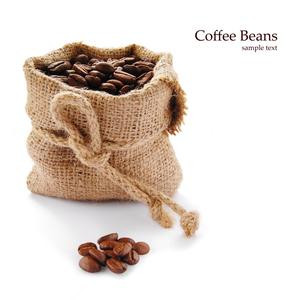The benefits of coffee grounds fertilizer

For the use of coffee grounds, for flower lovers, flower cultivation is the most suitable, but for coffee grounds flower lovers have tried but failed, so how to make coffee grounds fertilizer can be absorbed by plants?
Let's first take a look at the benefits of coffee grounds fertilizer:
Coffee grounds contain a lot of nitrogen, which is very suitable for plants that like acidic soil, so when using coffee grounds as fertilizer, it is important to note that not all plants are suitable to use coffee grounds as fertilizer. Only by making fertilizer for flowers that like acidic soil, we can get twice the result with half the effort.
How to convert coffee grounds into horticultural compost is a very important link. It must be ripe before it can be used as fertilizer, otherwise it will not only fail to achieve fertilizer effect, but also burn roots. Coffee also belongs to agricultural products, although it goes through the process of baking and so on. But the basic quality remains the same, and it is also suitable for composting.
Composting case 1:
Dry composting: put the coffee grounds on the balcony, stir it every day, and put it into the pot after about 10 days.
Wet composting: put the coffee grounds on the balcony without stirring it to become moldy. A few days later, it is found to be full of mold, and then mixed with sand and put into the pot.
Composting case 2:
Put the coffee grounds in a fertilizer bag, which is breathable, not necessarily a fertilizer bag, and put it in a place where the sun will not shine directly. The principle of complete fermentation of compost is that it can reach 60 ℃, and it is difficult to reach the high temperature period if there is too little coffee grounds, so I put it in a fertilizer bag to keep warm. After two or three days, because of the high amount of carbohydrates in the coffee grounds, the heat will begin to break down first. Wait until 3-4 days after the fever, because I keep adding new slag every day, I have to turn the pile so that the unheated slag turns to the middle and has a chance to get hot.
It is best to ferment until there is no original coffee flavor, or even a mildew smell from actinomycetes, which means that it has entered the post-ripening stage of composting and can be used and will not burn roots. But it still depends on what kind of plant you use. Some grass flowers are relatively young and prone to fertilizer damage, so wait a few more days for them to ripen. Generally, it is better to turn the pile, the fever period is about 21 days, and the post-ripening period does not need to turn the pile, but it takes about 40 days. The temperature is low in winter, so it needs to be covered to reach the above schedule, but it will still be a little slower.
Note: we should measure the size of the flower organ and use coffee grounds appropriately, but do not think that coffee grounds are fertilizer and put coffee grounds into the soil.
(source: Bath Flower Valley Flower Network)
Important Notice :
前街咖啡 FrontStreet Coffee has moved to new addredd:
FrontStreet Coffee Address: 315,Donghua East Road,GuangZhou
Tel:020 38364473
- Prev

About "bean queen"-Kona Hawaii Kona Coffee
Hawaiian Kona coffee is indeed a treasure in the world and is not easy to find. The best Kona coffee is divided into three grades: ExtraFancy, Fancy and NumberOne. This third-class coffee is produced on manors and under natural conditions. But most of the coffee on the market that calls itself Kona contains less than 5% of the real Hawaiian Kona coffee. Another kind of no can be found in the United States.
- Next

What is C8H10N4O2? What is caffeine?
What is the chemical formula C8H10N4O2? The name of its system is 1meme 3meme 7copyright trimethylmuri 1Hlypurinemae 2meme 6 (3Hmem7H)-dione 3meme 7mm dihydromae 1m 3e 7m 7m m m 1h h purinemae 2m 6m Dione, a xanthine alkaloid compound, do you know the answer? The answer is caffeine.
Related
- Detailed explanation of Jadeite planting Land in Panamanian Jadeite Manor introduction to the grading system of Jadeite competitive bidding, Red bid, Green bid and Rose Summer
- Story of Coffee planting in Brenka region of Costa Rica Stonehenge Manor anaerobic heavy honey treatment of flavor mouth
- What's on the barrel of Blue Mountain Coffee beans?
- Can American coffee also pull flowers? How to use hot American style to pull out a good-looking pattern?
- Can you make a cold extract with coffee beans? What is the right proportion for cold-extracted coffee formula?
- Indonesian PWN Gold Mandrine Coffee Origin Features Flavor How to Chong? Mandolin coffee is American.
- A brief introduction to the flavor characteristics of Brazilian yellow bourbon coffee beans
- What is the effect of different water quality on the flavor of cold-extracted coffee? What kind of water is best for brewing coffee?
- Why do you think of Rose Summer whenever you mention Panamanian coffee?
- Introduction to the characteristics of authentic blue mountain coffee bean producing areas? What is the CIB Coffee Authority in Jamaica?

